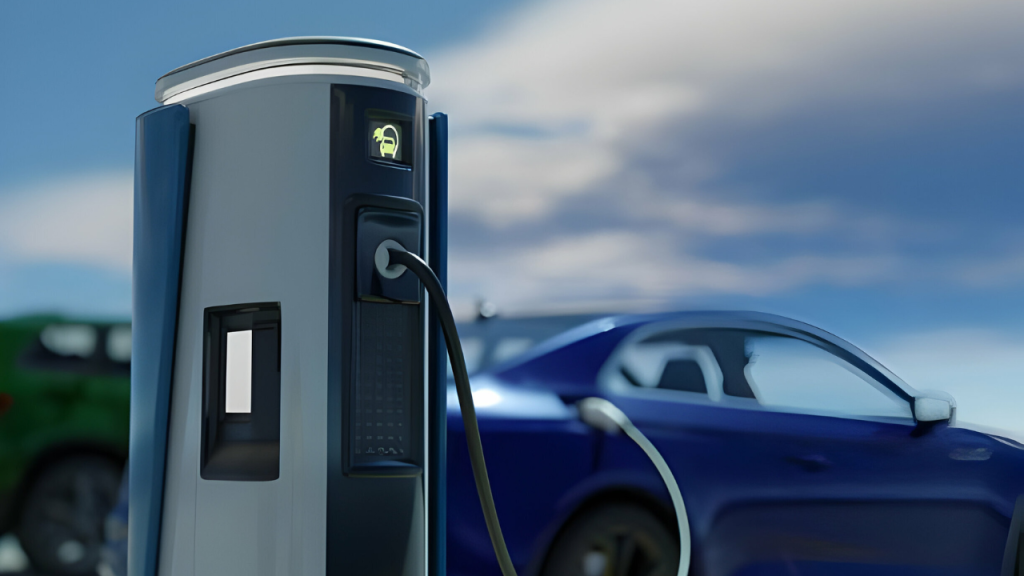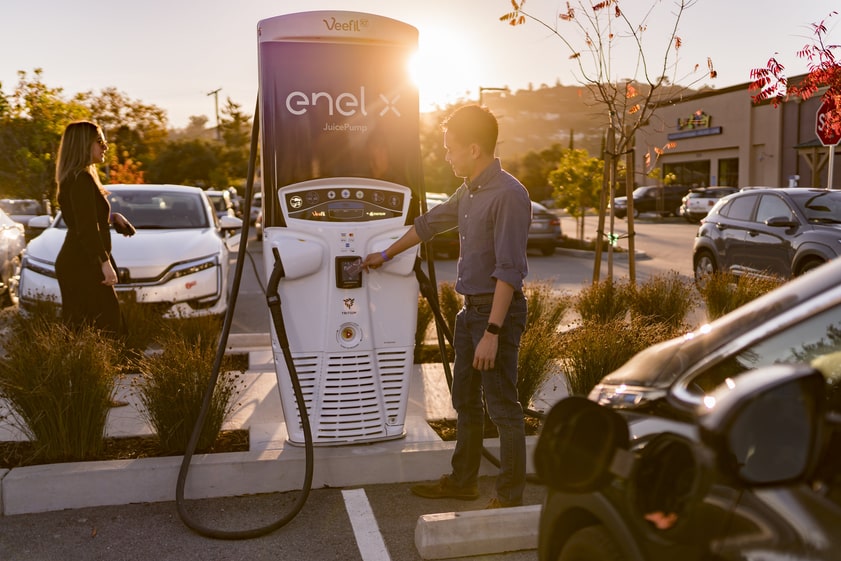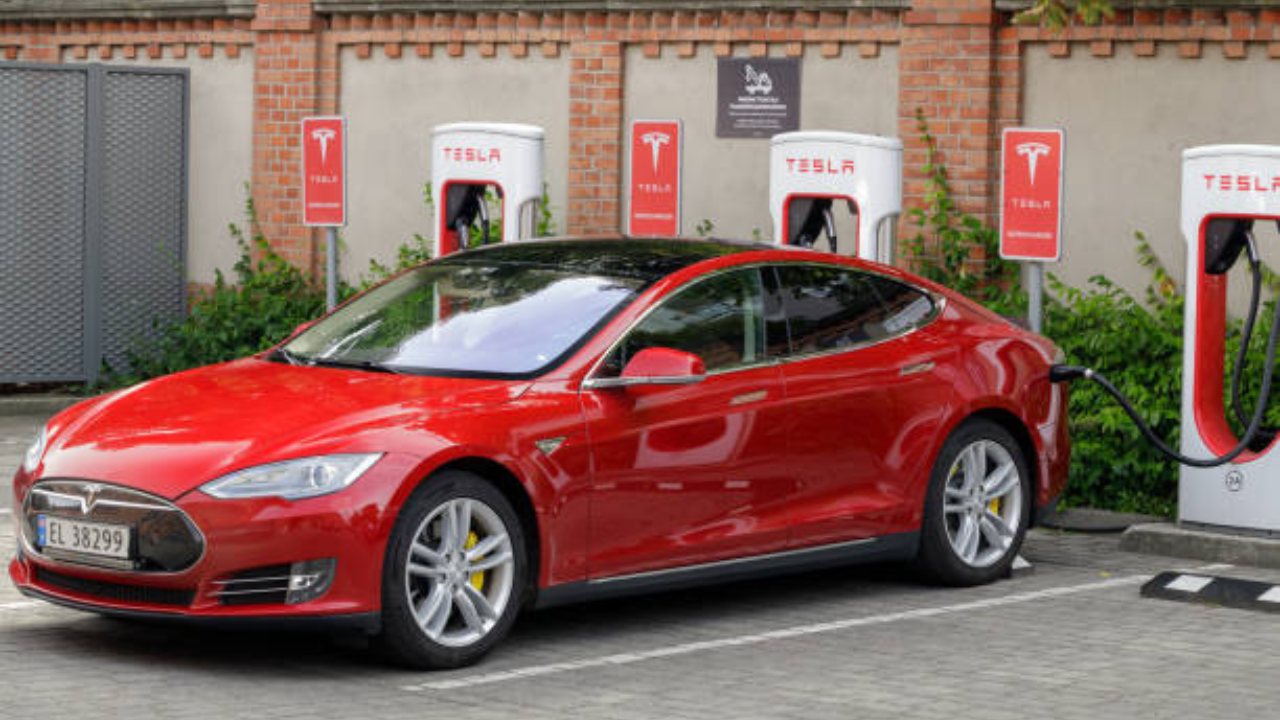Charging a Tesla battery typically costs around 10-20 cents per kilowatt-hour at home. This cost can vary based on electricity rates and charging speed.
Tesla offers different charging options, including home charging, Supercharger network, and destination charging. Understanding the cost of charging a Tesla can help owners plan and budget their electric vehicle expenses. Home charging is the most cost-effective option, as owners can take advantage of lower electricity rates during off-peak hours.
Alternatively, using the Supercharger network may be convenient for long-distance travel, but it can be more expensive. Destination charging, available at select hotels and restaurants, provides another charging option for Tesla owners.
The cost of charging a Tesla battery depends on the charging method and location, offering flexibility and convenience for electric vehicle owners.
Factors Affecting The Cost Of Charging A Tesla Battery
Electricity rates vary by location and time of use. Regions with higher electricity rates will naturally result in higher charging costs. Some areas offer lower rates during off-peak hours, making it more cost-effective to charge your Tesla overnight. Researching your local electricity tariffs can help you optimize the cost of charging.
The charging speed of your Tesla can influence the cost. Rapid charging at a supercharger station may be more expensive than a standard home charger. While fast charging is convenient, it tends to come with higher costs.
Understanding the trade-offs between charging speed and cost can help you plan your charging strategy efficiently.
The lithium-ion batteries in Tesla vehicles come in various capacities, which can affect the cost of charging. A larger battery capacity may take more energy, ultimately increasing the cost. Considering your driving needs and charging requirements can help you assess whether a higher-capacity battery is worth the potential increase in charging expenses.

Calculating The Cost Of Charging A Tesla Battery
When owning an electric vehicle, understanding the cost of charging your Tesla’s battery is essential. Knowing how to calculate the cost can help you budget for charging expenses and make informed decisions about your energy usage. This section will delve into the key factors to consider when determining the cost of charging a Tesla battery.
Understanding Kwh
Before diving into the cost calculations, it’s crucial to grasp the kilowatt-hours (kWh) concept. KWh is a unit used to measure energy consumption and is the critical metric for determining the cost of charging an electric vehicle. Essentially, it represents the energy used over time and is commonly used by electric utilities to bill customers.
Estimating Charging Time
When estimating the cost of charging your Tesla, it’s essential to consider the charging time required. The time it takes to charge your vehicle entirely depends on the charging method and battery capacity.
Supercharger stations typically offer faster charging speeds, while home charging using a standard outlet may take longer. It’s important to factor in the charging time to assess the energy consumption cost accurately.
Determining Cost Per Charge
Calculating the cost per charge involves multiplying the kWh consumed by the electricity rate. For instance, if your Tesla Model 3 requires 75 kWh to charge fully and your electricity rate is 15 cents per kWh, the cost per charge would be $11.25 (75 kWh $0.15).
Understanding this calculation allows Tesla owners to anticipate the charging expenses and plan their energy usage accordingly.
Comparing Charging Costs
One of the critical considerations for potential Tesla owners is understanding the cost of charging
their vehicle’s battery. Charging costs can vary depending on factors such as the type of charging station used, the location, and the time of day.
In this section, we will compare the costs of home charging versus using the Supercharger network and also explore how electric charging measures compare to alternative fuel options.
Home Charging Vs. Supercharger Network
The cost of charging your Tesla at home can be significantly lower than
using the Supercharger network. Most Tesla owners choose to invest in a home charging setup,
which typically involves installing a Level 2 charger in their garage or driveway.
These chargers provide faster charging speeds than the standard electrical outlet, allowing you to charge
your Tesla overnight.
- Cost: The cost of electricity for home charging varies depending on your location and the local
electricity rates. On average, it can range from $0.10 to $0.30 per kilowatt-hour (kWh). - Charging Speed: With a home charger, you can expect to charge your Tesla at a rate of around
25 to 35 miles of range per hour.
On the other hand, the Supercharger network offers a faster charging experience for Tesla owners
who are on the go. These stations are strategically located along major highways and urban areas,
allowing you to charge your vehicle quickly during long trips or when you don’t have access to a
home charger.
- Cost: Supercharger stations have their pricing structure. The cost per kilowatt-hour can
Vary depending on the region, but on average, it ranges from $0.20 to $0.30 per kWh. - Charging Speed: Superchargers can provide a charging rate of up to 200 miles of range in around
15 minutes, allowing for a quick boost when needed.
Alternative Fuels Vs. Electric Charging
Comparing the costs of electric charging to alternative fuel options like gasoline or diesel can provide
valuable insights into the long-term financial benefits of owning a Tesla.
Electric vs. Gasoline: On average, the cost of electricity per mile is significantly lower than
gasoline. While electricity costs can vary depending on your location, it typically ranges from $0.03 to
$0.06 per mile for a Tesla, while gasoline can cost around $0.12 to $0.15 per mile for a conventional
combustion engine car.
Electric vs. Diesel: When comparing electric charging to diesel fuel, electric charging still comes out
as the more cost-effective option. Diesel fuel prices can vary, but on average, it costs around $0.13 to
$0.15 per mile, making electric charging a more budget-friendly choice.
By considering the differences in charging costs between home charging and the Supercharger
network, as well as comparing electric charging to alternative fuelling options, potential Tesla
owners can make an informed decision about the most suitable and cost-effective charging solution
for their needs.

Tips To Reduce Charging Costs
Discover practical tips to reduce charging costs for your Tesla battery. Lower your expenses while enjoying electric vehicle benefits by implementing these cost-saving strategies.
Time Of Use Tariffs
Electricity tariffs can vary based on the day you charge your Tesla. Time-of-use tariffs often offer lower rates during off-peak hours when the electricity demand is lower. You can significantly reduce your charging costs by taking advantage of these lower rates. You must check with your utility provider to determine when these off-peak rates are available.
Solar Power And Renewable Energy
One of the most environmentally friendly and cost-effective ways to charge your Tesla is by utilizing solar power or other renewable energy sources. Installing solar panels on your property can provide clean and sustainable energy to charge your vehicle.
Not only will this reduce your reliance on the grid, but it can also help you save money in the long run. With solar power, you can generate electricity and reduce the cost of charging your Tesla.
Efficient Driving Techniques
Efficient driving techniques can significantly impact the range and cost of charging your Tesla. By adopting these practices, you can maximize your battery efficiency and minimize the need for frequent charging. Some efficient driving techniques include:
- Avoiding excessive acceleration and harsh braking
- Keeping a steady speed and using cruise control on highways
- Avoiding unnecessary idling
- Reducing the use of heating and air conditioning
By implementing these techniques, you can optimize your driving style and reduce your Tesla’s energy consumption, lowering charging costs.
In conclusion, you can employ several tips and strategies to reduce the cost of charging your Tesla battery. Taking advantage of time-of-use tariffs, utilizing solar power, and adopting efficient driving techniques can all contribute to significant savings.
Whether leveraging off-peak electricity rates, harnessing renewable energy, or optimizing your driving habits, you can control and reduce your charging costs. So, start implementing these tips today and enjoy the financial benefits of owning and charging a Tesla.
How much does it cost to charge a Tesla per month?
The cost to charge a Tesla per month depends on several factors, including the model of the Tesla, the local electricity rates, and the owner’s driving habits.
As of my last knowledge update in January 2022, Tesla vehicles typically have a range of energy consumption measured in kilowatt-hours per mile (kWh/mile). The current electricity rate in your area will determine the cost per kWh.
Here’s a general formula you can use to estimate the monthly charging cost:
Monthly Charging Cost = (Average Daily Miles * Energy Consumption Rate) * (Electricity Rate per kWh)
For example, if your Tesla Model 3 has an average energy consumption of 0.25 kWh/mile, you drive 30 miles per day, and the electricity rate is $0.12 per kWh:
Monthly Charging Cost = (30 miles/day * 0.25 kWh/mile) * $0.12/kWh = 7.5 kWh * $0.12 = $0.90 per day
So, the estimated monthly charging cost for this example would be around $27. Assuming similar driving patterns daily, you can adjust the numbers based on your situation to get a more accurate estimate. Remember that electricity rates and Tesla energy consumption may vary, so checking the latest information for accurate calculations is essential.
How much does it cost to charge a Tesla Model Y
The cost to charge a Tesla Model Y depends on various factors, including the local electricity rates, the vehicle’s energy consumption, and the distance driven. As of my last knowledge update in January 2022, the Tesla Model Y has an energy consumption rate measured in kilowatt-hours per mile (kWh/mile).
To estimate the charging cost, you can use the following formula:
Charging Cost=(Average Daily Miles×Energy Consumption Rate)×(Electricity Rate per kWh)Charging Cost=(Average Daily Miles×Energy Consumption Rate)×(Electricity Rate per kWh)
Here’s an example calculation:
Assuming the Model Y has an average energy consumption of 0.2 kWh/mile, you drive 40 miles per day, and the electricity rate is $0.15 per kWh:
Charging Cost=(40 miles/day×0.2 kWh/mile)×$0.15/charging Cost=(40 miles/day×0.2 kWh/mile)×$0.15/kWh =8 kWh×$0.15/kWh=8 kWh×$0.15/kWh =$1.20 per day=$1.20 per day
So, the estimated monthly charging cost for this example would be around $36. Adjust the numbers based on your specific situation and the latest electricity rates to get a more accurate estimate. Remember that energy consumption and electricity rates may vary, so checking the latest information for accurate calculations is essential.
How long does it cost to charge a Tesla?
The time it takes to charge a Tesla depends on several factors, including the charger used, the Tesla model, and the battery’s state of charge. Tesla vehicles have different charging capabilities and support various charging standards.
Here’s a general overview of the charging times for different Tesla models using standard charging options:
- Home Charging (Standard Household Outlet):
- This is the slowest charging option. Depending on the model, charging a Tesla might take 8-12 hours or more.
- Home Charging (Tesla Wall Connector or NEMA 14-50 Outlet):
- A dedicated home charger like the Tesla Wall Connector or a NEMA 14-50 outlet can provide faster charging.
- Charging times can range from 5 to 10 hours or more, depending on the Tesla model.
- Public Level 2 Charging (240V):
- Public Level 2 charging stations can provide faster charging than home outlets.
- Depending on the charging station and the Tesla model, a full charge might take around 4-8 hours.
- Tesla Supercharger:
- Tesla Superchargers are high-speed DC fast-charging stations designed for rapid charging.
- Supercharger speeds can vary, but as a rough estimate, it might take around 30 minutes to an hour to charge a Tesla to 80% capacity. Charging to 100% may take a bit longer due to tapering speeds.
Remember that charging times can vary, and newer Tesla models or software updates may introduce changes to charging capabilities. Additionally, the battery’s state of charge when you start charging can impact the overall time. Always refer to the specific charging information provided by Tesla for the most accurate details related to your particular model.
Frequently Asked Questions On How Much Does It Cost To Charge A Tesla Battery
How Much Does It Cost To Charge A Tesla Battery At Home?
The cost of charging a Tesla battery at home depends on your electricity rates. Charging the battery fully can cost around $10 to $20. However, this cost can vary based on the local electricity rates and the battery’s size.
Is It Cheaper To Charge A Tesla At Home?
Yes, charging a Tesla at home is generally cheaper than public charging stations. Home charging allows you to use lower electricity rates during off-peak hours, reducing overall costs. You can also benefit from renewable energy sources like solar power, reducing your charging expenses.
How Does The Cost Of Charging A Tesla Compare To Refueling A Conventional Car?
The cost of charging a Tesla is significantly lower than refueling a conventional car. Charging an electric car is more cost-effective since electricity is generally cheaper than gasoline. It can be up to 50% cheaper to charge a Tesla than refueling a conventional car with gasoline.
How much does it cost to charge a Tesla at a regular charging station?
The cost to charge a Tesla at a regular charging station depends on the electricity rates, but on average, it can range from $0.10 to $0.30 per kilowatt-hour. For example, charging a Tesla Model 3 from empty to full might cost around $10 to $20 at a regular charging station.
How much does it cost to fully charge a Tesla car battery?
The cost to fully charge a Tesla car battery depends on the model and local electricity rates. On average, it might range from $10 to $20 for a Tesla Model 3 at-home charging.
How long do Tesla batteries last?
Tesla batteries typically last between 8 and 15 years, with an estimated lifespan of 300,000 to 500,000 miles, depending on usage and other factors.
How much does it cost to fully charge a Tesla UK?
The cost to fully charge a Tesla in the UK depends on the model and electricity rates, but it generally ranges from £10 to £20 for a Tesla Model 3 using home charging.
Conclusion
Understanding the cost of charging a Tesla battery when planning electric vehicle ownership. The expense depends on various factors, such as electricity rates, charging methods, and travel patterns.
By considering these aspects and utilizing available resources like charging at home, public charging stations, or renewable energy, Tesla owners can optimize their charging costs and contribute to a more sustainable future.
With the growing infrastructure and government incentives, the cost of charging a Tesla battery is becoming increasingly accessible and affordable for all.

I am a technology Specialized writer and blogger based in the USA & UK. I have four years of experience in Technology, Social Media and all types of Battery’s like Solar Battery,Car Battery,Lithium Battery etc. So I work on solving these issues and give various tips on these issues.
